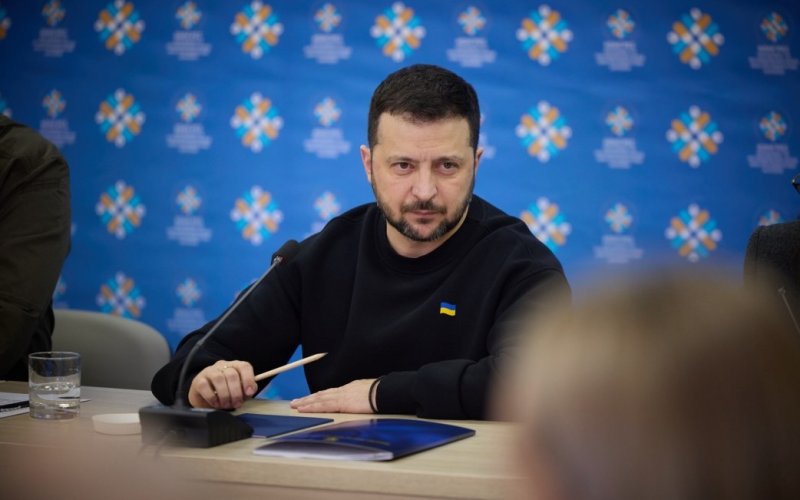
Following President Volodymyr Zelensky’s trip to Washington in mid-December, the Anglo-Americans decided to change their strategy in Ukraine after the failure of the "counteroffensive". The Ukrainian army now has serious logistical problems because it is equipped in a heterogeneous way by donations from the Allies, and not by the acquisition of its own arsenal in a coherent fashion. In addition, it has serious staffing problems. It is no longer able to mobilize and many of its current soldiers are old and sick. Above all, it suffers from a severe lack of training. Its soldiers may have been trained in combat, but they don’t know the basics of their profession. On the contrary, the Russian army has an impenetrable line of defense and new weapons that allow it to strike beyond the LOC and, above all, to disrupt NATO’s communications and commands. In addition, Russia relies on an unrivalled arms industry and a thriving economy.
Under these conditions, the Anglo-Americans were forced to give up hope of recovering the lost territories. They must therefore focus on preserving their current territory (including preparing for a Russian attack on Odessa) and turn to sabotage operations inside Russia.
Ukrainian President Volodymyr Zelensky visited Washington on January 11 and 12, but was unable to convince Congress to vote new subsidies for Ukraine. Republicans think he lost the war and that investing in his country is a waste of money.
Immediately, the Anglo-Americans changed their strategy. The State Department has therefore turned to the EU to compensate for US donations, while the Pentagon has developed an "Athens formula" to indirectly supply weapons (see 0351).
UK Prime Minister Rishi Sunak travelled to Kiev where he addressed the Verkhovna Rada on 12 January. He signed a new security agreement for the next 10 years and announced an increase in Ukraine’s military funding for the purchase of aerial and maritime drones. He announced that London was embarking on a long war against Russia, Iran and North Korea.
Deputy secretary of state Victoria Nuland rushed to Kiev this week to resolve the military and political crisis. She gave an impromptu press conference and no photographs of her interviews have been published.
Commander-in-chief of Ukraine’s armed forces General Valery Zaluzhnyi whom Volodymyr Zelensky considers a rival, has agreed to resign and to serve as ambassador to London. He was, in fact, held responsible for the failure of the "counter-offensive", which everyone had decided on together. However, before his departure, he published an op-ed on CNN’s website stating that the war cannot be won by conventional means, but requires adapting to Russia’s new weapons, particularly its drones and its means of electronic jamming of communications and obliteration of NATO commands.
However, President Volodymyr Zelensky spoke on television. He announced a vast reorganization of the armed forces and his government, without specifying what would happen next.
EU’s High Representative for Foreign Affairs and Security Policy Josep Borrell also rushed to Kiev. He asked about the changes in military requirements imposed by this new strategy and assured the Ukrainian president that the EU would provide him with one million shells during the year 2024. The various European bodies have agreed on €50 billion in aid (€33 billion in loans and €17 billion in grants) for the next three years. This is obviously far from enough to compensate for US donations.
French President Emmanuel Macron is expected to visit Kiev soon and to reveal his country’s role in the Anglo-American strategy.
This article is the editorial of our paywalled "Voltaire, international newsletter", n°73. To learn more, do not hesitate to subscribe: 150€ per year or 15€ per month.

















Stay In Touch
Follow us on social networks
Subscribe to weekly newsletter